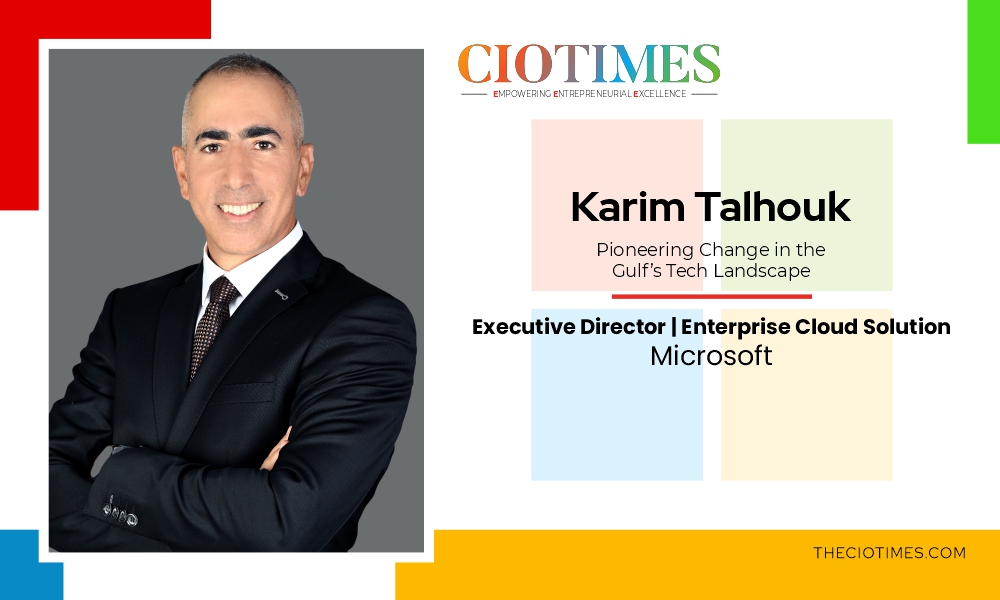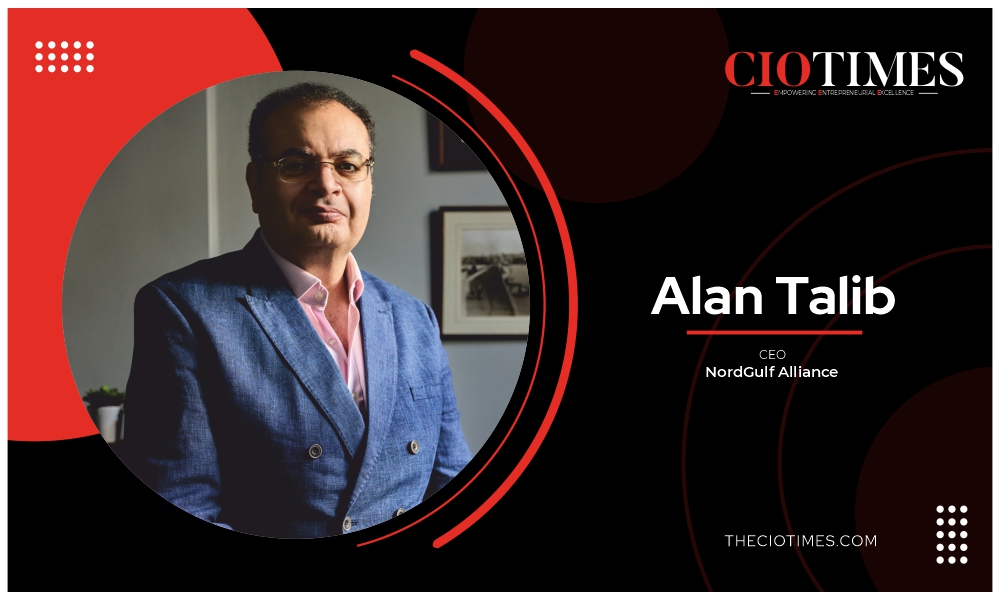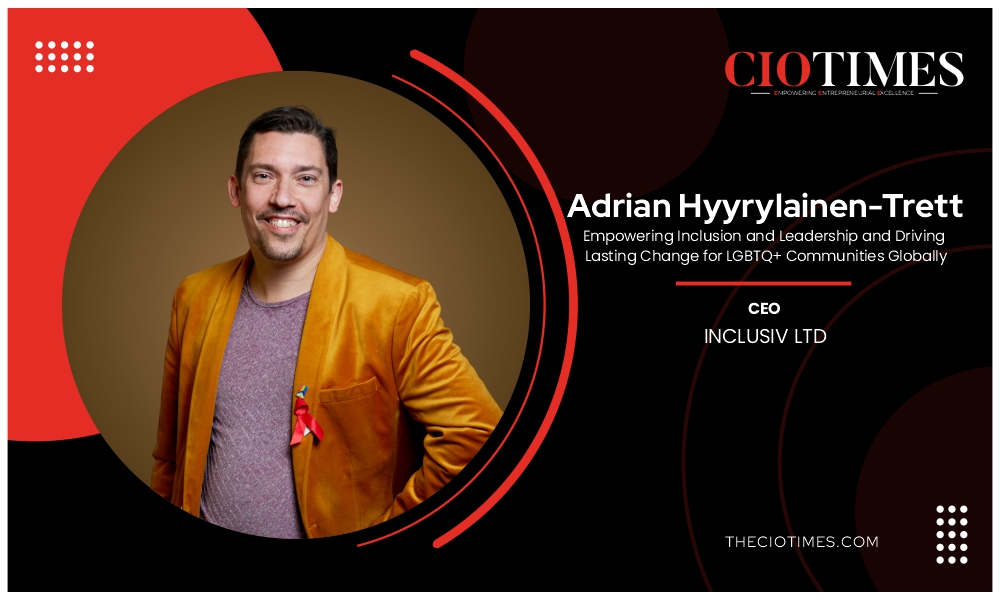Karim Talhouk is a seasoned business leader with extensive experience in the technology sector. Currently serving as the Head of Sales for Microsoft Cloud Solutions in Doha, Qatar, Karim has a proven track record of driving digital transformation and sales growth across the Middle East. His career at Microsoft includes roles such as Executive Sales Director for the Middle East Cluster and Sales Director for the Gulf region.
Karim holds a Bachelor of Science in Computer Science from the American University of Beirut and a Micro MBA in Entrepreneurship and Business Development from the Université de Genève. His expertise spans pre-sales, channel management, partner management, and product management, making him a valuable asset in the tech industry.
Known for his strategic vision and leadership, Karim is passionate about leveraging technology to optimize operations and enhance customer experiences. His contributions have been instrumental in helping businesses navigate the complexities of digital transformation and achieve sustainable growth.
The Professional Journey
Karim’s professional journey began in the manufacturing sector as a developer and system analyst, managing one of Lebanon’s first automated process manufacturing systems. This experience ignited his passion for technology. After over four years on the customer side, he moved to Dubai in 2001 to work in consulting and pre-sales with JD Edwards. There, he worked with key clients like EMAAR and Gulf News, learning the importance of understanding customer needs.
In 2003, PeopleSoft acquired JD Edwards, and Karim managed key projects across the Middle East. Two years later, Oracle’s acquisition marked another milestone. Shortly after, Microsoft approached him to manage the Dynamics partner ecosystem in the East Mediterranean region. This role allowed him to explore new markets and launch various Microsoft products.
Returning to Dubai, Karim managed Dynamics partners in the Gulf, eventually overseeing the entire Dynamics business. Doubling the business in three years was a testament to their team’s dedication and customer-centric solutions.
In 2019, Karim was chosen to lead the Middle East Cluster region’s cloud business, overseeing Microsoft cloud solutions across Qatar, Kuwait, Oman, Bahrain, Egypt, Lebanon, and Jordan. This role has been incredibly fulfilling, allowing him to help customers transform their businesses with cutting-edge cloud technologies.
A key highlight for Karim at Microsoft has been integrating AI into the solutions, driving efficiency, innovation, and growth. By understanding customers’ unique challenges and goals, his team has developed AI solutions that are both advanced and aligned with their needs.
With the launch of the local data center in Qatar, they’ve positioned themselves as a technology hub, leading regional transformation. Karim currently leads a talented team across seven solution areas, driving growth and innovation.
“Our journey underscores the power of technology, the importance of customer relationships, and the endless possibilities with AI,” he says.
Dealing with Challenges and Making the Most of Opportunities
As the Head of Sales, Karim faces several challenges and opportunities.
The challenges include:
Economic Diversification: Qatar and many Middle Eastern countries are working to diversify their economies away from hydrocarbons. This shift requires adapting sales strategies to align with new sectors such as education, healthcare, and ICT.
Regulatory Environment: Navigating the complex and often changing regulatory landscape can be challenging. Ensuring compliance while maintaining agility is crucial.
Cultural Sensitivity: Understanding and respecting cultural nuances is essential for building strong relationships and successful negotiations in the region.
The opportunities include:
Digital Transformation: There is a significant push towards digital transformation across the region. Microsoft’s cloud and AI solutions can play a pivotal role in helping businesses modernize and innovate.
Local Data Centers: The launch of local data centers, such as in Qatar, provides opportunities to offer cloud services with enhanced performance and compliance with local data regulations.
Public-Private Partnerships (PPPs): The new laws governing PPPs in Qatar open up opportunities for collaboration on large-scale projects, particularly in infrastructure and technology.
Growing Tech Adoption: With increasing internet usage and mobile phone penetration, there is a growing demand for advanced technology solutions, creating a fertile ground for Microsoft’s products and services.
“Leveraging these opportunities while effectively managing the challenges will be key to driving growth and success in the region,” feels Karim.
Driving Revenue Growth in the Cloud Solutions Market
Karim and his team have implemented several key strategies to drive revenue growth in the cloud solutions:
- Establishment of Local Data Centers: Microsoft has launched hyperscale cloud data centers in Qatar and the UAE. These data centers provide local businesses with access to scalable, highly available, and resilient cloud services, including Microsoft Azure and Microsoft 365. This local presence helps meet regulatory requirements and enhances performance and reliability for customers.
- Partnerships and Ecosystem Development: Microsoft has focused on building a robust partner ecosystem. By collaborating with local and global partners, Microsoft enhances its service offerings and extends its reach. This strategy includes working with over 100 partners in Qatar alone.
- Investment in Skills and Talent Development: Recognizing the importance of a skilled workforce, Microsoft invests in upskilling local talent. This includes training programs and certifications to ensure that professionals in the region are equipped to leverage Microsoft’s cloud technologies effectively.
- Focus on Security and Compliance: Microsoft emphasizes the importance of security and compliance in its cloud offerings. By ensuring that its services meet local regulatory standards and provide robust security features, Microsoft builds trust with its customers.
- Customer-Centric Approach: Microsoft tailors its solutions to meet the specific needs of different industries and customers. This customer-centric approach ensures that businesses can effectively adopt and benefit from cloud technologies.
These strategies collectively help Microsoft drive revenue growth and support the digital transformation of businesses in Qatar.
Expanding in Diverse Regions
Karim approaches market expansion in diverse regions with a strategic and multifaceted approach. Some key strategies include:
- Understanding Local Markets: A deep understanding of the local market dynamics, cultural nuances, and economic conditions is crucial. This involves conducting thorough market research and engaging with local stakeholders to tailor strategies that resonate with the specific needs and preferences of each country.
- Building Strong Partnerships: Collaborating with local partners, government entities, and educational institutions is essential. These partnerships help in extending Microsoft’s reach and enhancing its service offerings. For instance, Microsoft works with over 100 partners in Qatar alone to drive digital transformation.
- Support for Digital Transformation: Microsoft actively supports the digital transformation initiatives of governments and businesses in the region. This includes providing advanced cloud services that leverage AI, data analytics, IoT, and hybrid capabilities. These services help organizations innovate and improve operational efficiency.
- Talent Development: Investing in the development of local talent through training programs and certifications ensures that professionals in the region are equipped to leverage Microsoft’s technologies effectively. This strategy helps build a skilled workforce that can drive the adoption of Microsoft solutions.
- Customer-Centric Approach: Tailoring solutions to meet the specific needs of different industries and customers is key. This customer-centric approach ensures that businesses can effectively adopt and benefit from cloud technologies.
- Community Engagement: Engaging with the local community through initiatives like the Customer Innovation Center fosters collaboration and inspires groundbreaking solutions and the Developer community. These initiatives help build a strong community around Microsoft’s technologies.
“By combining these strategies, I can effectively drive market expansion and support the digital transformation of businesses and governments in the Middle East,” shares Karim.
Overcoming Challenges with a Learner’s Attitude
One of the significant challenges Karim faced was managing a diverse team spread across multiple countries, each with its own unique market dynamics, cultural nuances, and regulatory environments. The team was responsible for driving the adoption of Microsoft’s cloud solutions in a region undergoing rapid digital transformation and sometimes economic instability. The challenge was to unify the team’s efforts, align their goals, and ensure consistent performance across all markets.
Approach to Overcome the Challenge:
Karim began by establishing a unified vision and mission for the team, setting clear, achievable goals aligned with Microsoft’s broader objectives and market-specific needs. Regular communication and team-building activities fostered collaboration and a shared purpose.
Recognizing the value of local expertise, he empowered regional leaders to make market-specific decisions, enabling agile and responsive strategies. Significant investment in training and development ensured the team was well-equipped, covering both technical and soft skills.
Advanced collaboration tools like Microsoft Teams facilitated seamless communication across the dispersed team, with regular virtual meetings and workshops maintaining cohesion.
A culture of innovation was encouraged, where team members felt empowered to experiment with new ideas. Successes were celebrated, and failures were seen as learning opportunities, fostering an environment of continuous improvement.
Outcome and Learnings:
Karim successfully unified the team, significantly increasing cloud solution adoption and consistently exceeding sales targets. Key learnings included:
- Shared Vision: Unifying diverse teams with a clear vision drives success.
- Empowerment and Trust: Trusting local leaders fosters agility.
- Continuous Learning: Ongoing training is crucial for adapting to market changes.
- Effective Communication: Leveraging technology ensures open communication in dispersed teams.
- Innovation Culture: Encouraging innovation and viewing failures as learning opportunities drive growth.
“What I learned is the importance of leadership, communication, and adaptability in overcoming challenges and driving success in a diverse and dynamic region,” he sums up.
The Crucial Role of Innovation
Innovation is crucial in a cloud solutions sales strategy, driving growth, differentiation, and customer satisfaction. It helps Microsoft stand out in a competitive market by offering cutting-edge technologies like AI and advanced analytics, providing unique value propositions. Innovation allows for tailored solutions that address specific customer challenges, enhancing operations and customer experiences.
It also enables digital transformation, helping businesses modernize IT infrastructure and adopt new business models. Innovative cloud solutions offer scalability and flexibility, essential for adapting to diverse market conditions. Enhanced security technologies ensure data protection and compliance, building customer trust. Additionally, innovation drives efficiency and cost savings through automation and AI-driven insights.
Fostering a culture of continuous improvement, Microsoft stays at the forefront of technological advancements, continuously enhancing its offerings and providing customers with the latest tools and capabilities.
“Innovation is a cornerstone of Microsoft’s cloud solutions sales strategy. It enables us and the company to differentiate itself, address customer needs, drive digital transformation, and provide scalable, secure, and efficient solutions that meet the evolving demands of the market,” shares Karim.
Challenges Enroute Transformation
Transforming customers to the cloud and adopting AI face several challenges. Data sovereignty and compliance concerns, especially in regions with strict regulations, can create hesitation. Security concerns persist despite robust measures, requiring customer education on enhanced security features. Legacy systems and integration complexities add to the cost and planning needed for migration.
Initial costs and ongoing subscription fees can deter organizations, despite long-term savings. A shortage of skilled professionals in cloud technologies and AI slows adoption. Change management and cultural resistance within organizations also pose significant hurdles. Implementing AI is complex, requiring clear understanding and integration into business processes. Lastly, fears of vendor lock-in can slow decision-making for cloud adoption.
“Addressing these challenges involves a combination of education, strategic planning, and support from cloud providers like Microsoft. By demonstrating the value, security, and long-term benefits of cloud and AI solutions, and by providing robust support and training, Microsoft can help organizations overcome these obstacles and successfully transform their operations,” opines Karim.
Technology Trends
The biggest Technology Trends Karim sees for the next 5 years are:
- Artificial Intelligence (AI) and Machine Learning: AI continues to evolve, with advancements in generative AI, natural language processing, and machine learning. These technologies are transforming industries by automating tasks, enhancing decision-making, and creating new business models.
- Quantum Computing: Quantum computing promises to solve complex problems that are currently intractable for classical computers. This technology has the potential to revolutionize fields such as cryptography, materials science, and optimization.
- Edge Computing: With the proliferation of IoT devices, edge computing is becoming increasingly important. It allows data processing closer to the source, reducing latency and bandwidth usage, and enabling real-time analytics.
- 5G and Future Connectivity: The rollout of 5G networks is set to enhance connectivity, enabling faster data transfer, lower latency, and the growth of IoT applications. This will drive innovations in areas like autonomous vehicles, smart cities, and remote healthcare.
- Cybersecurity and Digital Trust: As digital transformation accelerates, so do cybersecurity threats. Innovations in cybersecurity, including AI-driven threat detection and zero-trust architectures, are crucial to protect data and maintain digital trust.
- Sustainable Technologies: There is a growing emphasis on technologies that support sustainability, such as renewable energy solutions, energy-efficient computing, and carbon capture technologies.
- Immersive Technologies (AR/VR): Augmented reality (AR) and virtual reality (VR) are transforming sectors like education, healthcare and entertainment by providing immersive experiences and new ways of interaction.
Preparing Microsoft for Future Trends:
Microsoft’s continuous investment in R&D keeps it at the forefront of technological advancements, including AI, quantum computing, and edge computing. Strategic partnerships with industry leaders, startups, and academic institutions integrate cutting-edge technologies and co-create innovative solutions.
Upskilling the workforce through training programs and certifications ensures proficiency in emerging technologies. A customer-centric approach tailors solutions to specific needs, driving meaningful business outcomes.
Microsoft prioritizes robust security solutions, integrating AI-driven threat detection and promoting zero-trust architectures. Committed to sustainability, Microsoft develops energy-efficient technologies and supports customer sustainability initiatives.
To meet the growing demand for cloud services, Microsoft expands its global data center footprint, ensuring scalable, reliable, and secure cloud solutions.
“By aligning sales and strategy planning with these trends, Microsoft is well-positioned to lead in the next wave of technological innovation and support its customers in navigating the future landscape,” shares Karim.
Encouraging Diversity and Inclusion
Microsoft, its leadership, and Karim are deeply committed to fostering diversity and inclusion (D&I) in the workplace. Adopting diversity and inclusion within a company is vital for fostering a positive and innovative culture. It ensures that all employees feel valued and respected, which boosts morale and engagement. Diverse teams bring a variety of perspectives, leading to more creative solutions and better decision-making. This inclusive environment not only attracts top talent but also helps retain it, as employees are more likely to stay with a company that appreciates their unique contributions. Ultimately, a commitment to diversity and inclusion enhances the company’s ability to understand and meet the needs of a diverse customer base, driving overall success and growth.
Microsoft fosters diversity and inclusion (D&I) through several key strategies. Their commitment is driven by a mission to empower everyone, embedded in their culture and goals. Inclusive hiring practices increase representation, supported by diverse candidate slates and unbiased recruitment. Employee Resource Groups (ERGs) provide platforms for connection and advocacy.
Training programs promote D&I awareness, including unconscious bias training and inclusive leadership workshops. Microsoft ensures pay equity through regular analyses. They strive for an inclusive workplace culture, fostering allyship and support among employees.
An annual D&I report measures progress and highlights areas for improvement. Community engagement includes partnerships to advance D&I in tech and support social justice initiatives. Leadership accountability ensures D&I goals are integrated into business strategies, with leaders tracking progress and driving inclusion within their teams.
By implementing these strategies, Microsoft creates a workplace where diverse perspectives are valued, and all employees can thrive. This commitment to diversity and inclusion not only enhances the company’s culture but also drives innovation and business success.
Eye on the Goals
Each fiscal year, Karim and the team set new goals to keep pace with evolving technology. Key goals include accelerating cloud adoption of Microsoft solutions across various sectors by showcasing their value in enhancing efficiency, innovation, and scalability. For Karim, enhancing customer experience through tailored solutions and leveraging AI and data analytics for personalized services is crucial. Expanding market reach by targeting SMEs with cost-effective solutions and flexible payment options is also a priority.
Microsoft fosters innovation by collaborating with clients and partners at the Customer Innovation Center, hosting workshops to inspire new cloud technology uses. Building a skilled workforce through training programs ensures readiness for cloud adoption and digital transformation. Strengthening partnerships with local tech firms, government entities, and educational institutions drives joint initiatives and expands our cloud solutions’ reach.
To tackle challenges, they emphasize local data centers for compliance, conduct security workshops, offer comprehensive migration services, develop flexible pricing models, and partner with educational institutions to bridge the skills gap. Change management programs and hybrid cloud solutions address cultural resistance and vendor lock-in concerns. These strategies drive growth and success for Microsoft’s cloud solutions in Qatar.
“By focusing on these goals and implementing strategic plans to tackle the challenges, I can drive significant growth and success for Microsoft’s cloud solutions in Qatar,” concludes Karim.
A Quote to Live By:
Greek philosophy has always fascinated Karim with its profound insights into human nature and the pursuit of knowledge. The ancient Greek philosophers, with their emphasis on reason, ethics, and the quest for excellence, have left an indelible mark on Western thought. Their teachings continue to resonate today, offering timeless wisdom that guides us in our personal and professional lives. One quote that particularly inspires him is from Aristotle:
“We are what we repeatedly do. Excellence, then, is not an act, but a habit.”
This powerful statement encapsulates the essence of Greek philosophy, emphasizing the importance of consistent effort and the cultivation of virtuous habits to achieve true excellence.




